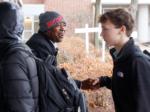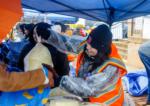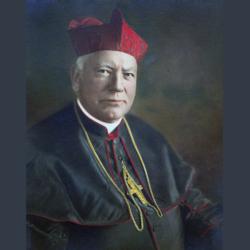Harvard event highlights bad Roe decision
CAMBRIDGE -- Poor legal footing will ultimately bring down Roe v. Wade, the United States Supreme Court decision that federalized abortion nearly 40 years ago, according to speakers at a Nov. 14 Harvard University forum.
Steve Aden, senior counsel with the Alliance Defending Freedom, called Roe the "single worst constitutional decision of all time." He asserted that Roe was not a constitutional decision at all but a "socio-political manifesto."
Arden spoke to a couple of dozen students at Harvard Hall while about 150 more viewed the simulcast online. The event was sponsored by Harvard Right to Life and Law Students for Life.
In the Roe decision, the majority found a right to abortion as part of a right to privacy found in the 14th Amendment, adopted in 1868 to abolish slavery. They justified the decision with bad history and bad medicine, Arden said.
The majority attempted to find a historical basis for abortion as a fundamental right. Even their best examples show only that abortion has sometimes been tolerated.
On the medical front, the justices established a trimester framework. At the time of the decision, viability was considered to be at 28 weeks, the start of the third trimester. Now, children born at 22 weeks of gestation routinely survive.
The decision struck down laws that limited abortion in 49 states -- with New York being the only state with unfettered access.
"The unprecedented scope of Roe's overreaching, unrestrained ruling forced the Supreme Court to backpedal for 10 years," he said.
For a decade, the Supreme Court clarified Roe with decisions in subsequent cases where they ruled that states can criminalize forced abortion, live birth abortion and death by abortion through gross negligence. They also ruled in favor of laws protecting conscientious objectors and taxpayers' right not to subsidize abortion.
In a 1992 decision, Planned Parenthood vs. Casey, the Supreme Court ditched the trimester framework and clarified that the right to abortion is based in the liberty interest in the 14th Amendment, rather than the right to privacy. The Partial-Birth Abortion Ban was upheld in Carhart vs. Gonzalez in 2007, and for the first time, an abortion procedure was banned without an exception for the life and health of the mother.
"Roe is a shell of its former self," Aden said. "It would be an act of mercy to put it under."
He added that the Casey decision contained "post hoc rationalization." In it, the justices stated that women's reliance on abortion now makes the procedure necessary.
They wrote, "The Roe rule's limitation on state power could not be repudiated without serious inequity to people who, for two decades of economic and social developments, have organized intimate relationships and made choices that define their views of themselves and their places in society, in reliance on the availability of abortion in the event that contraception should fail. The ability of women to participate equally in the economic and social life of the Nation has been facilitated by their ability to control their reproductive lives."
Aden said that from the court's perspective, "Abortion is the best thing that ever happened to women." He added that such a view sells women short.
Teresa Collett, a professor at the University of St. Thomas School of Law in Minneapolis, Minn., spoke to the Harvard students and called Roe a "failure of imagination about women's place in society."
"True women's equality is grounded in the concept that women should not have to become little men," she said. "We don't need abortion to succeed. What we need is a fair chance."
In the workplace, women's fertility and maternity should be accommodated. She said that the number one question she gets from female law students is "How can I use my training and still have a family?" Roe provides no solution.
Collett, a Catholic, added that her faith and Pope John Paul II's Theology of the Body show that the sexes are equal but different. Each has their own gifts that should be valued. Additionally, everyone who has a child -- both mothers and fathers -- should be supported in fulfilling their responsibility to their offspring.
James McGlone, vice president of Harvard Right to Life, said that in hosting the event, the group wanted to show where the Supreme Court went wrong in making the Roe decision. He said it is a scandal that abortion is the law of the land, adding that Roe should be overturned.
"The underpinning legal reasoning is off the rails," he said.
McGlone added that he learned about the dignity of human life at Catholic school in the Diocese of Patterson in New Jersey and hoped the event would be an opportunity to reach out to his Harvard peers.



















